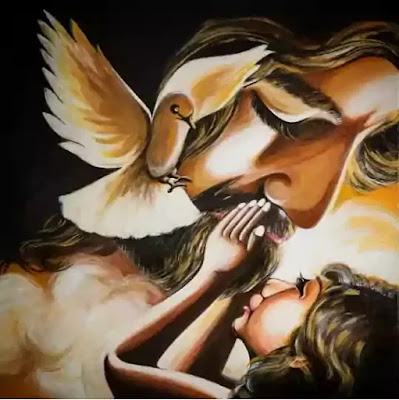Also Read
It must be clearly understood that The Waste Land is a social document of our times, a poem which throws light on the problems and perplexities of modern civilization. Eliot is not enamored of the golden past nor does he have a sigh for the vanished glory of the past in The Waste Land. He is not an escapist or a romanticist; he is a stern realist who lays his hand on the pulse of the modern man. He does not believe that was all beautiful and glorious, The stories of King Oedipus or King Fisher go to show that their wasteland suffered from drought and barrenness on account of sin and moral laxity.
 |
| Glory of the past |
Chain of History: The theme of The Waste Land is essentially the spiritual experience of man; it has to be related to its background. In the world of today, one cannot ignore the social, secular, commercial and technical compulsions of the modern world, Eliot has referred to the past in order to show the similarity of the problems of both the ages and how the experience of the past can help in finding solutions of the problems of our time.
The technique of myth, symbol and parallelism make a reference to the past necessary. If we are to understand the spiritual paralysis and barrenness of our time we must compare it with similar conditions in the history of man. After all, history is a continuous stream; it is a chain which links different periods separated by regional distance and in point of time and sequence. The history of civilizations - how they rose and decayed - can have lessons for the whole of mankind. It is for search for clues and hints that the past can furnish for the solution to our problems but Eliot digs into ancient history and literature.
Mechanical Love: Undoubtedly, Eliot found in the past a sense of faith, purpose and devotion. The people of the past were prepared to suffer for faith. Love and crime were as much a part of the life of the past as of the life today. However, the parallelism mentioned by Eliot shows that Cleopatra's love was vigorous and intense and it involved her whole being; she was ready to suffer for love. However, in society today, the typist girl has no emotional involvement in the sex act. She takes it as she would take an aspirin to get over a tension or a headache. This contrast makes the sterility and barrenness of modern civilization rather vivid and pointed. The vigor and vitality of the past. Moreover, the past had another advantage over the present. It showed the courage and vitality of the human spirit; it had the capacity to do things both good and evil. People then were not hen were not inert, lazy and bored. Elsewhere, Eliot wrote that the quality which distinguishes humanity is its capacity to do good or evil. Vigour and vitality is the secret of any civilization or great period in history. In the modern age, spiritual paralysis has overtaken man. This is due to our secular democracy, commercial interests, mechanical and technological progress which has eroded man's faith in religion, moral values and individual development and achievement. Man may be an atom in this great universe, but he is an intense atom, capable of yielding energy and power. It is this latent power which needs to be discovered and utilized. Eliot's reiteration of the ancient wisdom of the Upanishads Datta, Dayadhvam, Damyata (Give, sympathize, control) is the declaration of universal and timeless truth which holds in itself the secret of man's evolution and salvation.
Man's spiritual condition: Just as Eliot has highlighted some of the good points of the past he could have focused attention on the strong points of modern civilization. This may be regarded as an omission and it seriously inhibits a balanced view of the world of the twentieth century. A balance sheet of the achievements of this century would highlight scientific achievement, minimization of the drudgery of human labor, conquest over disease and other natural calamities. It appears that Eliot was primarily concerned with man's spiritual condition and as such he found that the past had an edge over the present in this matter. But this does not mean that he would like to exchange the present for the past. His comparison of the present to the past is functional and meant to underline the need for faith and morality. The past had its crimes, lusts and other evils. Let us not get away with a rosy and romantic picture of earlier civilizations. The Waste Land covers the history of mankind and analyses the similarities between different epochs. Eliot, in fact, deals with the tragedy of man's life-the struggle of the good against the evil in man - and how the tragedy can be averted if man becomes serious about his own destiny. When we finish the Poem, we get a feeling of hope that all is not lost, and if humanity is to be saved, it must make attempts to save itself.